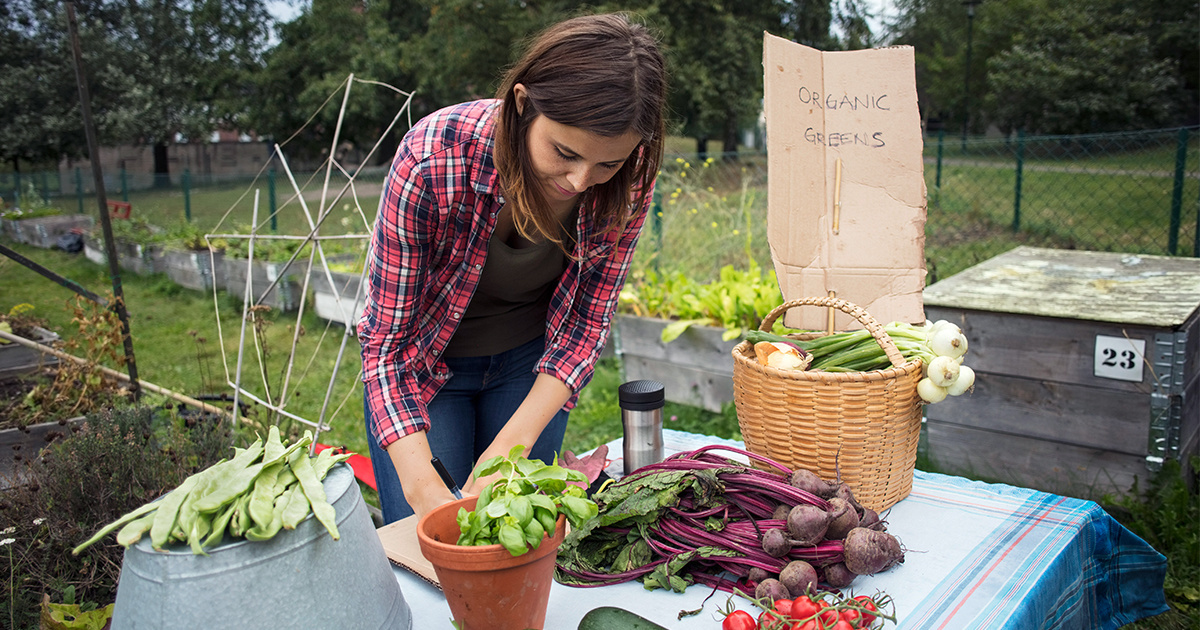

Maskot / Getty Images
By Meredith Rosenberg
In early October, the United Nations released a climate change report forewarning of global catastrophes (severe flooding, wildfires, droughts) that could begin by 2040 unless drastic changes are made to reduce greenhouse gases. It might seem like a daunting task, but here are five lifestyle changes you can make right now to start reducing your carbon footprint. If you really want to help the planet, follow the next-level suggestions to make the biggest impact.
1. Change Your Commuting Habits
The U.S. Environmental Protection Agency estimates that transportation contributes 28 percent of U.S. greenhouse gas emissions, one of the main culprits behind global warming. The easiest solution, depending on where you live, is to take public transportation whenever possible. Alternatively, walking and biking are not only beneficial to the environment, but also beneficial to your health.
Next Level: Drive an Electric Car
Gas-fueled cars rely on fossil fuels, which are notorious for releasing carbon dioxide into the air. Hybrid cars are a slightly better option as they’re more fuel efficient, but they still rely on gas. Since electric cars eliminate the need for gas, they don’t release harmful emissions, and are the best option at the moment.
2. Reduce Meat and Dairy Consumption
The process involved in producing dairy and meat, especially red meat, takes a much larger toll on the environment than a plant-based diet. In addition to taxing farmland and the water supply, the meat and dairy industries release a large number of fossil fuels into the environment. Besides reducing the amount of meat and dairy you eat, consider the environmental impact of say, chicken versus beef. And if you can’t imagine eliminating meat and dairy, at least eat locally and organic whenever possible.
Next Level: Switch to a Plant-Based Diet
A recent study claims that going plant-based could reduce U.S. emissions by as much as 73 percent. Plus, meat alternatives, like the Beyond Burger, now taste better than ever. Just note that alternative milks, like almond, may sound like a good idea, until you realize how much water is required to produce them.
3. Modify Electricity Usage
Like driving, electricity also accounts for 28 percent of U.S. greenhouse emissions, with many power plants relying on coal or natural gas to generate electricity. Small household changes involve swapping out regular (incandescent) light bulbs for LED bulbs, which use up to 90 percent less energy. Upgrading to energy-efficient appliances, including refrigerators, washers and dryers, is another way to make a difference.
Next Level: Install Solar Panels
Remove your dependence on a power plant by generating energy via solar panels. This way, you’re not only saving money on utility bills, but you’re reducing your carbon footprint by powering your home with the sun, not fossil fuels.
4. Buy Eco-Friendly Products
Whether beauty products or cleaning supplies, resist the urge to impulse buy and research brands ahead of time. This guide provides a starting point for overhauling beauty products, while this guide to cleaning products is applicable to consumers, too.
Next Level: Make Your Own
The DIY route for eco-friendly products has taken off in recent years; there are now countless sites to get you started, like the ones mentioned below.
5. Recycle, Reuse or Donate
You probably recycle already, but are you recycling the right way? Not all types of household items (like plastic bags or dirty pizza boxes), can be recycled by local companies, so despite your best efforts, certain items may still end up in the landfill. Be sure to double check local guidelines, which should also provide dates for area recycling events—solving the problem of how to discard batteries, used paint cans and other hazardous items.
Next Level: Work Toward a Zero Waste Lifestyle
A zero waste lifestyle aims to reduce household waste to (practically) zero. The challenge may seem intimidating, but sites like Impactful Ninja, Zero Waste Home, Going Zero Waste and Trash is for Tossers can get you started.

 233k
233k  41k
41k  Subscribe
Subscribe 